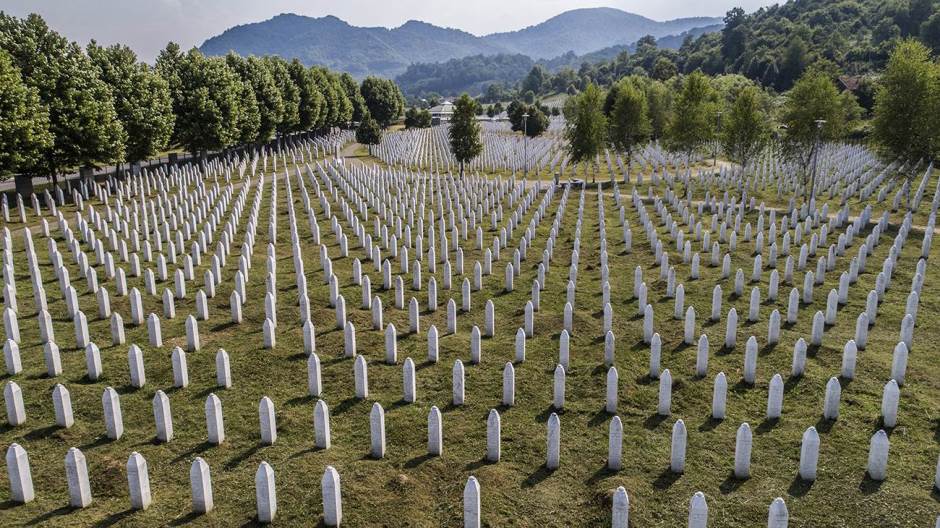
To bring the international attention to the 25th anniversary of the Srebrenica genocide, the World Jewish Congress (WJC) has launched a widespread campaign, calling for the respect and remembrance for the victims that they deserve, the international organisation representing Jewish communities worldwide said Wednesday.
“The World Jewish Congress (WJC) and its President, Ronald S. Lauder, are committed to commemorating the July 1995 genocide of Bosnian Muslims from the town of Srebrenica at the hands of Bosnian Serb paramilitary forces, and to exposing and condemning attempts to deny this genocide,” the Congress said, recalling that Republika Srpska, Bosnia's Serb-majority entity, and the neighbouring Serbia “affirmatively deny that the mass killings at Srebrenica constituted genocide.”
On July 1, Srebrenica genocide survivor, Adisada Dudic, spoke about her experience at a webinar launched by the WJC, recounting her family's harrowing journey to escape the horrors of war. Dudić Hoque lost 50 relatives, including her father and uncles, during the war and spent the following three years living in refugee camps.
Council of Europe's Commissioner for Human Rights, Dunja Mijatovic, joined the WJC for its ongoing WebTalk series on July 7, calling on the international community, especially the leaders of Serbia and Republika Srpska, to recognize the genocide at Srebrenica and understand that the continued glorification of the perpetrators of the massacre in these countries is dangerous and must be stopped.
She also emphasized the importance and necessity of marking 11 July as the official Remembrance Day for the victims of the Srebrenica Genocide.
WJC Associate Executive Vice President and General Counsel Menachem Z. Rosensaft reiterated the Commissioner's call for marking 11 July as Remembrance Day for the Srebrenica Genocide, emphasizing in an op-ed in Just Security that, “Like Holocaust denial, denial of the Srebrenica genocide cannot be allowed to be portrayed as a legitimate intellectual position. Numerous countries, Germany foremost among them, have criminalized Holocaust denial. At the very least, those who deny the Srebrenica genocide and glorify its perpetrators need to be exposed, publicly condemned, and ostracized. The victims of Srebrenica and their families deserve no less.”
On 11 July 1995, forces of the Bosnian Serb breakaway Republika Srpska, under the command of General Ratko Mladic, took over the United Nations-protected enclave at Srebrenica and murdered approximately 8,000 Bosniak – that is, Bosnian Muslims – men and boys, and deported more than 25,000 Bosniak women, children, and elderly men under horrific conditions. Numerous panels of the International Criminal Tribunal for the Former Yugoslavia (ICTY), as well as the International Court of Justice, have held unambiguously the crimes perpetrated by the Republika Srpska forces at Srebrenica constituted genocide within the meaning of the 1948 UN Convention on Genocide. Six Bosnian Serbs, including Mladić and Radovan Karadzic, the president of Republika Srpska in 1995, have been convicted of genocide by the ICTY for their roles in the crimes committed at Srebrenica.
Kakvo je tvoje mišljenje o ovome?
Učestvuj u diskusiji ili pročitaj komentare





 Srbija
Srbija
 Hrvatska
Hrvatska
 Slovenija
Slovenija







